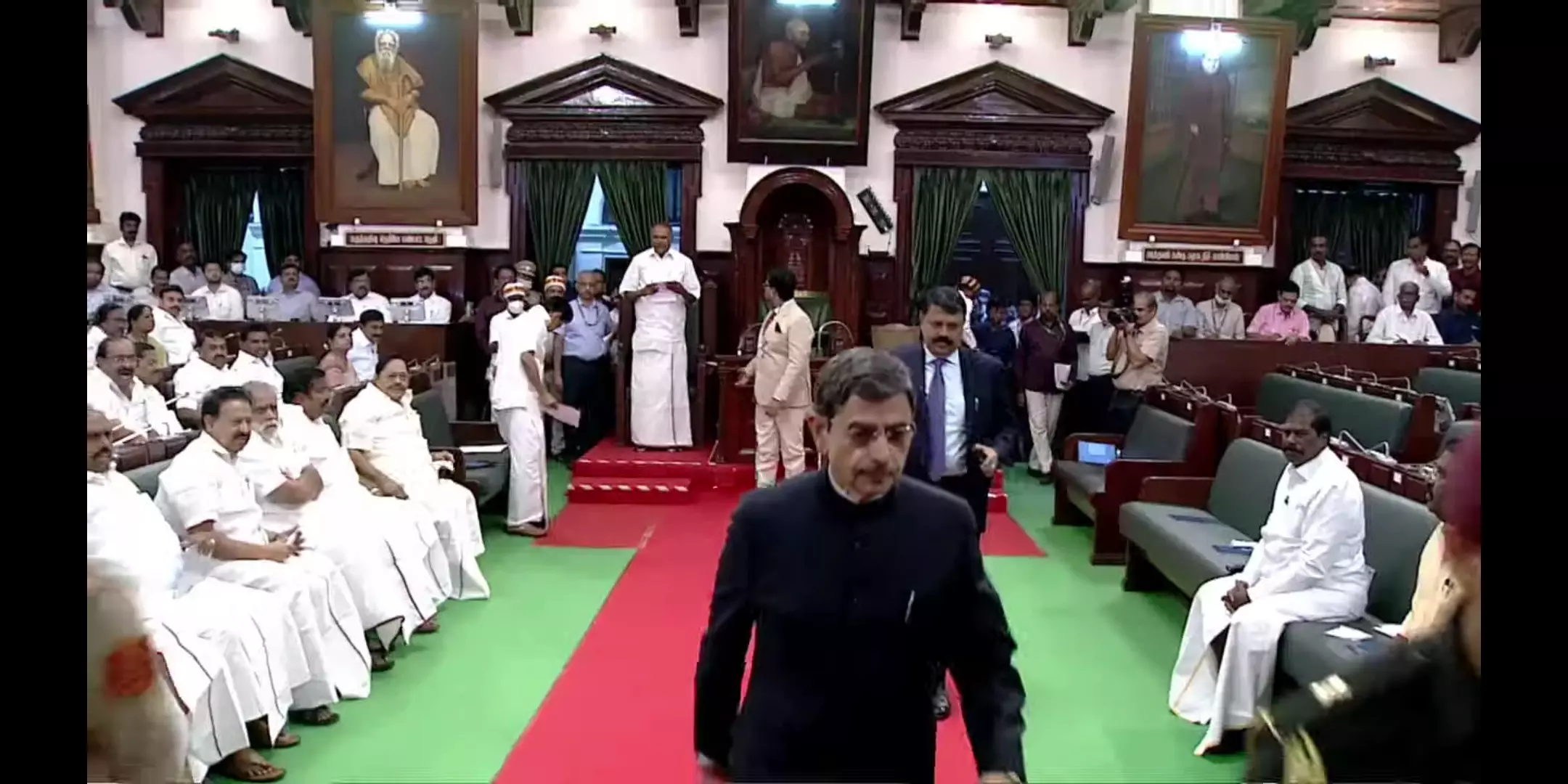Consequential mistrust

The rift between the two topmost Constitutional functionaries of a state again came to the fore in an ugly fashion. The walkout by the governor of Tamil Nadu, Ravindra Narayana Ravi, from the state assembly, reiterated in action the growing rot in governor-government relations. What led to his walkout was an evident confrontation between Chief Minister MK Stalin and him. The state legislature, on January 9, saw a series of departures from conventions. It is both a Constitutional convention and a right conferred to the governor under Article 176(2(b) of the Indian Constitution to address the first session of the House. Conventionally, the governor is generally not expected to deviate from the text of the address — which is a policy statement of the elected government. The Tamil Nadu governor made glaring omissions from the text. The names of prominent leaders like Periyar EV Ramasamy, Babasaheb Ambedkar, Kalaignar Karunanidhi etc. were omitted. The governor also chose to refer to the governor as ‘this government’ instead of ‘the Government of Tamil Nadu.’ More importantly, he also skipped pronouncing key terms like social justice, equal rights, the Dravidian model etc. Following the general norm, Chief Minister MK Stalin could have ignored the omissions but, at his prerogative, he chose not to do so. He instead exercised his powers and, under rule 17 of the TN legislative assembly, passed a resolution stating that the text originally prepared by the state government will go on record, and not the one interspersed with omissions made by the governor. This chain of incidents triggered the governor’s walkout. This fallout was a culmination of the brewing mistrust between the two functionaries. The Centrally appointed governor has reportedly been at loggerheads with the government. His remark, stating that Tamizhagam (Abode of Tamils) will be a more appropriate name for the state rather than Tamil Nadu (Country of Tamils), has attracted the ire of the ruling government in particular. The governor also didn’t shy away from branding Tamil Nadu’s politics as being ‘regressive’ and reeking of regionalism. It can be safely said that such remarks were unsavoury and uncalled for. Regionalism in politics is not necessarily a sign of regression. It is, on the contrary, an embodiment of the progressive principle of federalism. It is an unfortunate reality that despite proving its mettle over a time period spanning decades, regional politics is still seen by many as a marginal force. It is difficult to imagine a state like Tamil Nadu, which thrives on immense regional pride, to concede to the ideas floated by the governor. The ugly episode in Tamil Nadu Assembly has yet again stirred a debate around the role of the governor in a Parliamentary democracy, which remains unsettled right since the beginning of India’s independence era. In fact, the role, position and appointment of the governor was one of the most hotly debated topics in the Constituent Assembly. It was after much deliberation that the process of appointment by the President was adopted. Political stalwarts like Acharya JB Kripalani and Bishwanath Das had vigorously opposed the role and position of the governor. Leaders like Annadurai had mixed no words in outrightly denouncing even the need for such a position. However, as things unfolded then, in an apparently balanced view and with a vision for having a strong Centre, the Constituent Assembly settled for the position in a role we see today. Over a period of time, a perception has been consolidated that the Governors, in general, work with a bias towards the Centre — despite being the Constitutional head of the state. This perceived flaw needs to be corrected, and incidents like the one in Tamil Nadu show that the time is ripe now. The Constitution is a dynamic document that needs to be evolved with the requirements of the time. The role of the governor in a Parliamentary democracy like ours needs to be re-interpreted. Meanwhile, governors and chief ministers need to exhibit due mutual trust to ensure that the democratic and Constitutional spirit is not undermined.



